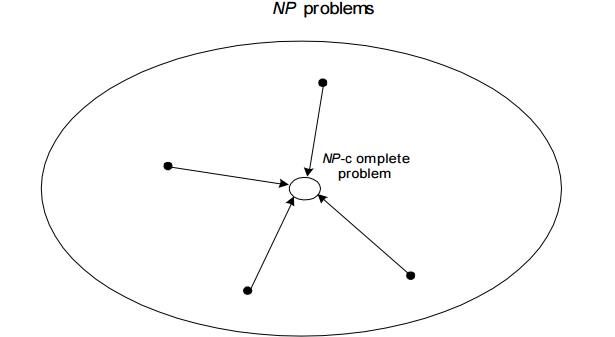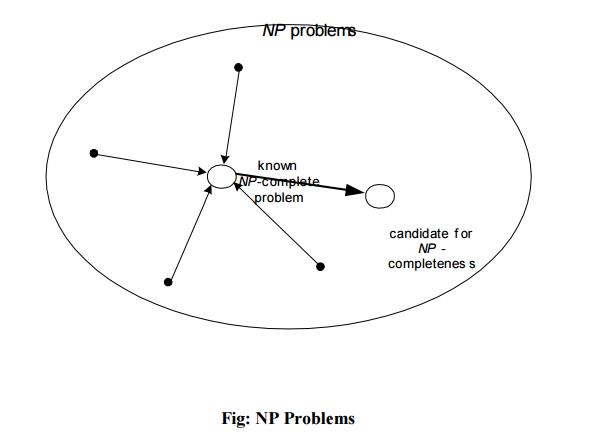Chapter: Analysis and Design of Algorithm : Traversals, Branch and Bound
NP Hard and NP Completeness
INTRODUCTION TO NP-HARD AND NP-COMPLETENESS
P: the class of decision problems that are solvable in O(p(n)) time, where p(n) is a polynomial of problemŌĆśs input size n
Examples:
b searching
b element uniqueness b graph connectivity b graph acyclicity
primality testing (finally proved in 2002)
NP (nondeterministic polynomial): class of decision problems whose proposed solutions can be verified in polynomial time = solvable by a nondeterministic polynomial algorithm
A nondeterministic polynomial algorithm is an abstract two-stage procedure that: b generates a random string purported to solve the problem
b checks whether this solution is correct in polynomial time
E.g. Problem: Is a boolean expression in its conjunctive normal form (CNF) satisfiable, i.e., are there values of its variables that makes it true?
This problem is in NP. Nondeterministic algorithm: b Guess truth assignment
b Substitute the values into the CNF formula to see if it evaluates to true Example: (A | ¬B | ¬C) & (A | B) & (¬B | ¬D | E) & (¬D | ¬E)
Truth assignments:
A B C D E 0 0 0 0 0
. . .
1 1 1 1 1
Checking phase: O(n)
1. PROBLEMS ARE IN NP?
b Hamiltonian circuit existence
b Partition problem: Is it possible to partition a set of n integers into two disjoint subsets with the same sum?
b Decision versions of TSP, knapsack problem, graph coloring, and many other combinatorial optimization problems. (Few exceptions include: MST, shortest paths)
b All the problems in P can also be solved in this manner (but no guessing is necessary), so we have:
P inculde NP
b Big question: P = NP ?
NP problems

NP Hard problem:
ŌĆō Most problems discussed are efficient (poly time)
ŌĆō An interesting set of hard problems: NP-complete.
ŌĆó A decision problem D is NP-complete if itŌĆśs as hard as any problem in NP, i.e.,
CookŌĆÖs theorem (1971): CNF-sat is NP-complete
Other NP-complete problems obtained through polynomial-time reductions from a known NP-complete problem

Fig: NP Problems
Examples:
TSP, knapsack, partition, graph-coloring and hundreds of other problems of combinatorial nature
v P = NP would imply that every problem in NP, including all NP-complete problems, could be solved in polynomial time
v If a polynomial-time algorithm for just one NP-complete problem is discovered,
then every problem in NP can be solved in polynomial time, i.e., P = NP
v Most but not all researchers believe that P NP , i.e. P is a proper subset of NP
Related Topics